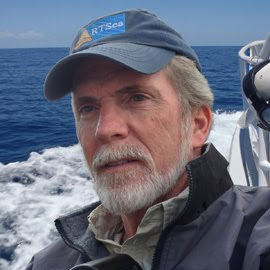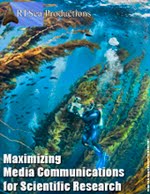 Surfbird News reports on all things related to coastal surfbirds and the environments that support them. The site recently reported on the findings of an international consortium of scientists on the impact on CO2 sequestration with the loss of coastal ecosystems like mangroves and marshlands.
Surfbird News reports on all things related to coastal surfbirds and the environments that support them. The site recently reported on the findings of an international consortium of scientists on the impact on CO2 sequestration with the loss of coastal ecosystems like mangroves and marshlands. Urgent Action Needed To Halt Increasing Carbon Emissions from Destroyed, Degraded Coastal Marine Ecosystems
The destruction of coastal carbon ecosystems, such as mangroves, seagrasses and tidal marshes, is leading to rapid and long-lasting emissions of CO2 into the ocean and atmosphere, according to 32 of the world’s leading marine scientists.
That key conclusion highlights a series of warnings and recommendations developed by the new International Working Group on Coastal “Blue” Carbon, which convened its first meeting in Paris last month. The Working Group was created as an initial step in advancing the scientific, management and policy goals of the Blue Carbon Initiative, whose founding members include Conservation International (CI), the International Union for Conservation of Nature (IUCN), and the Intergovernmental Oceanographic Commission (IOC) of UNESCO.
 Much of the carbon emitted when mangroves, seagrasses or tidal marshes are destroyed is estimated to be thousands of years old because the CO2 stored in these ecosystems is found not only in the plants, but in layer upon layer of soil underneath. Total carbon deposits per square kilometer in these coastal systems may be up to five times the carbon stored in tropical forests, due to their ability to absorb, or sequester, carbon at rates up to 50 times those of the same area of tropical forest. The management of coastal ecosystems can supplement efforts to reduce emissions from tropical forest degradation.
Much of the carbon emitted when mangroves, seagrasses or tidal marshes are destroyed is estimated to be thousands of years old because the CO2 stored in these ecosystems is found not only in the plants, but in layer upon layer of soil underneath. Total carbon deposits per square kilometer in these coastal systems may be up to five times the carbon stored in tropical forests, due to their ability to absorb, or sequester, carbon at rates up to 50 times those of the same area of tropical forest. The management of coastal ecosystems can supplement efforts to reduce emissions from tropical forest degradation.
Dr. Emily Pidgeon, Marine Climate Change Director at Conservation International, and a leading blue carbon conservation scientist emphasized, “We have known for some time the importance of coastal ecosystems for fisheries and for coastal protection from storms and tsunamis. We are now learning that, if destroyed or degraded, these coastal ecosystems become major emitters of CO2 for years after the plants are removed. In the simplest terms, it’s like a long slow bleed that is difficult to clot. So we need to urgently halt the loss of these high carbon ecosystems, to slow the progression of climate change.”
“The capacity of coastal wetlands to reduce climate change by capturing and storing carbon dioxide is considerable, but has been overlooked” says Jerker Tamelander, Oceans and Climate Change Manager for IUCN. “If valued and managed properly, coastal ecosystems can help many countries meet their mitigation targets, while supporting adaptation in vulnerable coastal areas.”
Read the entire article in Surfbird News.

















No comments:
Post a Comment